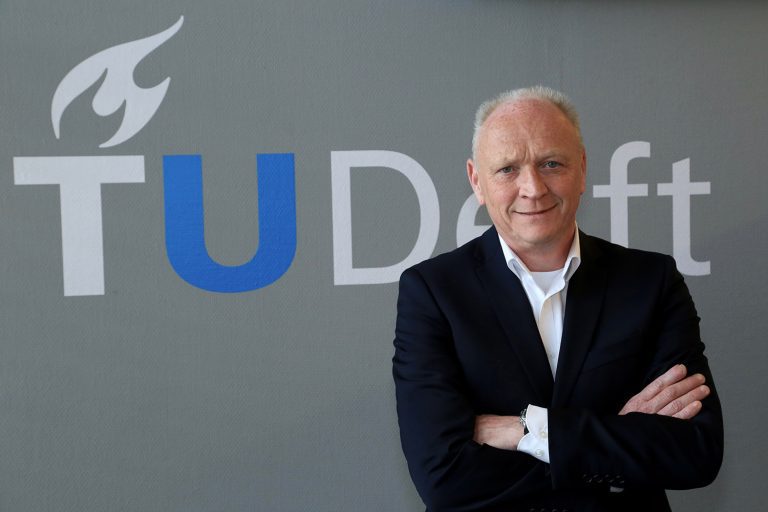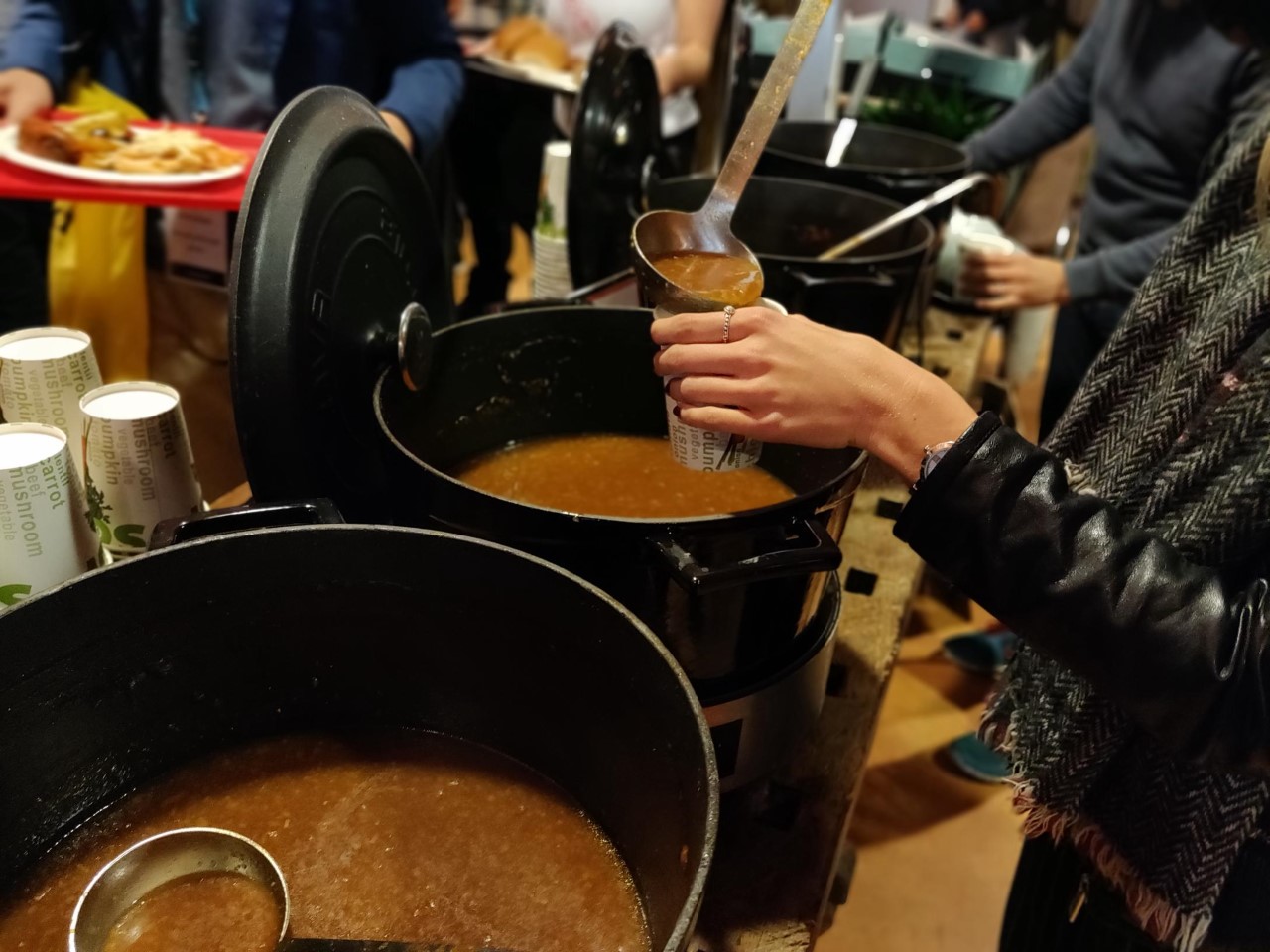TU Delft has had a new caterer since last summer, Cormet. Do people like them and what is being done about the criticism?
(Photo: Marjolein van der Veldt)
Anyone who has lunch in TU Delft hospitality venues, hears colleagues and students talking, reads the letter to the editor column of Delta, will not have escaped the fact that the campus has a new caterer. Sodexo has gone and Cormet has come, and with it a new choice of food, opening hours, prices, payment system, cutlery, crockery and appearance.
As with all change, one man’s trash is another man’s treasure. The letters to the editor in Delta show that there is some concern about the catering’s impact on the climate.


Philippe van der Pal, process coordinator catering, events and hospitality, and his colleagues were at the start of the hospitality vision (in Dutch) that lay at the foundation of all the changes. How are he and his colleagues responding to the criticism and how important are the sustainability issues?
Cormet started this summer. What has been the initial reaction of students and employees?
“People need to get used to new things, just like when we changed from Douwe Egberts to Maas coffee (in Dutch). For our staff, the past few weeks have mostly been about starting and finding our feet. We worked on 20 renovations in the hospitality venues throughout the summer and the renovation at the Faculty of Architecture and the Built Environment was finished the evening before its opening on 3 September. Two things stand out in the initial responses: higher quality and the perception that it is more expensive.”
Is it perception or is it really more expensive?
“During Sodexo’s time, people asked for more variety and fresher and tastier food. Cormet has largely succeeded in this and the consequence is that some products are more expensive. Whether your meal really is more expensive depends on what you choose as there is also a cheaper budget range.”
Cormet won the tender. What was the most important aspect for TU Delft in the tendering process: the price, the quality or the environment?
“The tender ran for one-and-a-half years. We first went to the faculties and asked them what their expectations were. We also talked to the Student Council, the Works Council and Human Resources. Two clear requirements emerged: more international and greater variety. On top of this, we also wanted to see local businesses represented. Sustainability is an ever more present criteria of tenders.”
In a letter to the editor, two staff members criticised the plastic cutlery. The cutlery breaks if you exert any pressure and it is not separated in the waste stream. There will be a recycling trial, but for now it ends up in the incinerator. Can this issue not be addressed?
“The type of plastic used in the cutlery can be used as ‘filling’ for 3D printers. Indeed, we are not yet separating it everywhere. We are running a separation trial in the Aula and at Pulse. Once we have collected 500 kilos we can give it to a company in Rotterdam.”
I eat in the Aula and I see plenty of cutlery mixed in with the other waste. It is not clearly marked that it can be separated.”
“We are going to improve this. By the end of December we will have to have produced concrete plans for improving sustainability and the waste streams. The plates and the coffee cups can be separated, but this is not yet happening. We also want to influence behaviour, especially as the company in Rotterdam will only accept a single waste stream without any other rubbish. TU Delft must provide clear separation bins and users must then separate properly.”
But even if we separate, all that waste does not feel sustainable. Will we ever see earthenware plates, metal cutlery and dishwashers reappear?
“The biggest problem with the earthenware crockery and metal cutlery was that it kept disappearing and new ones had to be ordered all the time. On top of this, the dishwashing areas were sources of noise, smell and sometimes even pests. After researching this with IDE’s Professor Joost Vogtländer and the Green Office, we opted for disposables. It is the best option for now. The ultimate goal is that TU Delft becomes circular in 2030. We are moving towards this step by step, drawing on the knowledge we have at the time. We have had recyclable coffee cups for a while now. We started in 2016 with zero recycling and now 60% to 65% of the five million cups with the TU Delft logo is being recycled.”
One student wrote to us about the wide range of animal products and asked if TU Delft is taking climate change seriously.
“We always ask caterers to make sure that there have vegetarian options. But it is not our intention to turn the whole campus vegetarian. We are all intelligent adults who can make our own decisions. Of course we have to take it seriously, but if you go 100% vegetarian, you will get reactions from others. I call on people to ask for vegetarian options. If suppliers hear this a few times, they will adjust their products on the campus accordingly. This is already being done in the coffee bars, for example, that offer soya, almond and oat milk.”
How are you dealing with the criticism and ideas of users?
“We are reading the reactions on the Facebook page. People will also be able to share their experiences on Instagram soon. A whiteboard will be hung up in the restaurants where users can share their ideas, questions and requests with the restaurant staff. We want to challenge people who are critical to say what they do want. We pass any recommendations and issues on to Cormet. Cormet itself also has a website where you can submit feedback. Complaints and suggestions lead to improvements.”
Do you have a question or comment about this article?
s.m.bonger@tudelft.nl


Comments are closed.